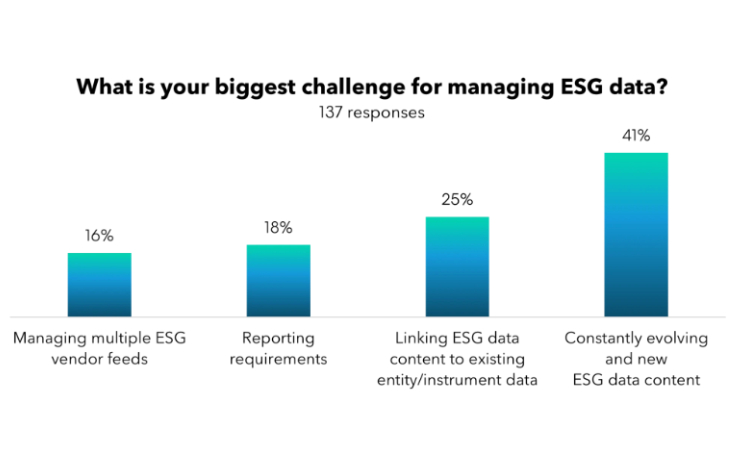Blackrock, the largest global asset manager with over USD $6 Trillion in assets under management, mentions in their ESG whitepaper, “Exploring ESG: A Practitioner’s Perspective,” “academic studies demonstrate that companies with high ratings on ESG factors have a lower cost of capital. Separate research finds that greater transparency of public companies in disclosing non-financial (ESG) data results in lower volatility. Firms with good ratings on material sustainability issues significantly outperform firms with poor ratings on these issues.[1]”
As company efforts to address social and environmental problems through competitive profit-generating mechanisms become more sophisticated, so do the financial tools that allow investors to identify and target short and long term value creation. One misconception of ESG is that fund managers integrating ESG into investment decision making have to sacrifice financial returns. In fact, the opposite is the case, as the CIO of State Street Global Advisors, Richard Lacaille points out – “There is mounting evidence that ESG issues can affect the performance of investment portfolios and have implications for a company’s earnings and prospects as well as broader economic functioning.”
From a personal perspective, as a Director of a consulting business focused on implementation of strategic ESG initiatives, my interests sit in proving the connection to financial performance, not just driving ethical or operational change. Alternatively, as a board member for a blockchain business, my role as a respondent to ESG questions from fund managers, investors, analysts, and intermediaries has shifted from questions simply about succession planning and core governance, to ones of climate change, human rights, tax transparency, and more.
Excessive board oversight and involvement in day-to-day management is not the purpose nor desired result of an ESG implementation. This responsibility can be very complex as some ESG reporting frameworks are designed for compliance reporting to the market, with little strategic approach on offer. The role of an effective ESG strategy is to understand what is material to a wide range of stakeholders, not just investors. An ESG strategy isn’t box ticking, it’s focusing on material issues and creating a dynamic response to investor expectations.
The stance of the investment community has been well publicised that it expects greater data and transparency on ESG. Slightly less coverage discusses the positive opportunities for ESG integration for a listed business.
Mathias Leijon, Head of Corporate and Investment Banking at Nordea points out: “Securing a strong ESG performance will, for a company, over time mean avoiding problems and incidents related to sustainability. This should ultimately create a competitive advantage, both by reducing – or even avoiding – ESG-related costs, and by reducing volatility in the cash flow generated from the absence of such major incidents. Over time, this should reduce the risk premium investors will apply to the company’s cost of capital.”[3]
ESG implementation creates operational and reputational efficiencies, improving the following:
-
Employee retention
-
Talent acquisition
-
Debt capital market pricing curves
-
Investor base & accessing long term investors
-
Communication with customers/clients
-
Business model & innovation
-
Leadership & governance
-
Reduced risk, in turn reducing insurance premiums & costs
The materiality of ESG on underlying performance is proven, but still up for discussion are expectations of shareholder reporting. ESG reporting and strategy isn’t a one size fits all, so it shouldn’t be seen as just another reporting requirement. The board’s role in ESG implementation is to guide the senior management team with strategic direction, and to safeguard compliance and risk management.
By James Cronan – james.c@esgri.com
[2] http://www.psm.org.mx/wp-content/uploads/downloads/SustainableInvesting2012.pdf
Contact us to discuss how your organisation can reduce ESG risks, create an effective ESG strategy, reduce their carbon footprint and better manage ESG risk in your supply chain.










